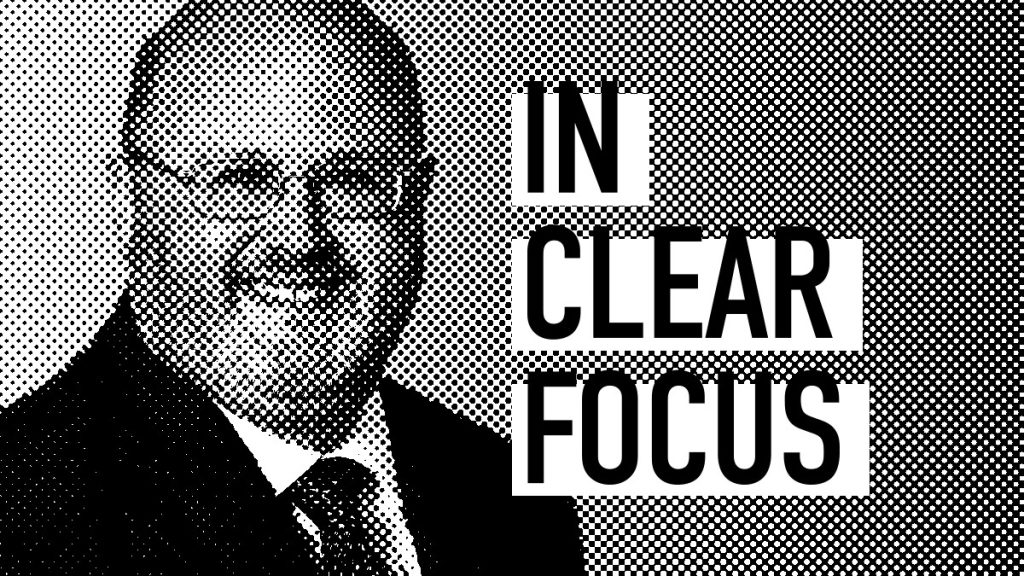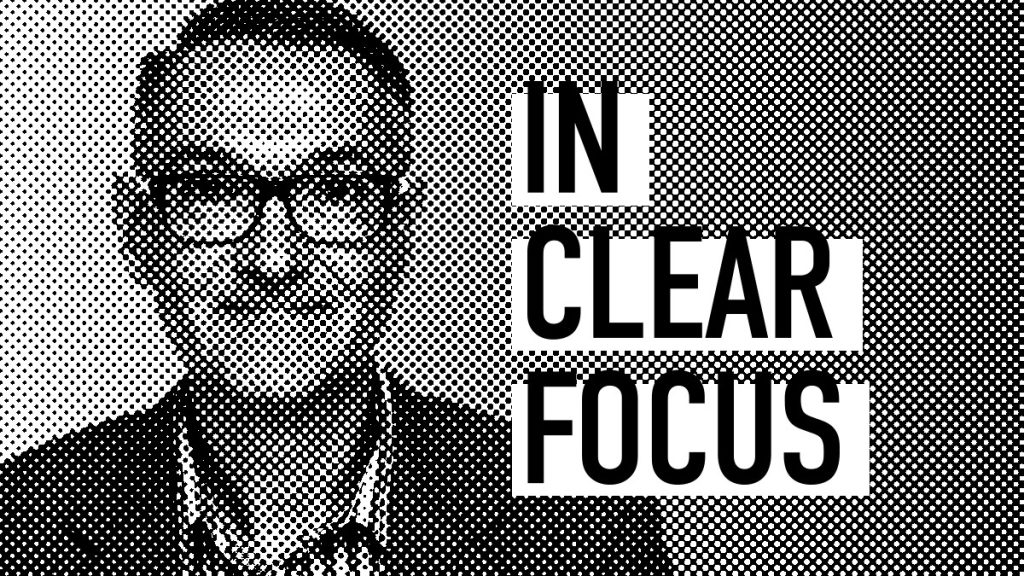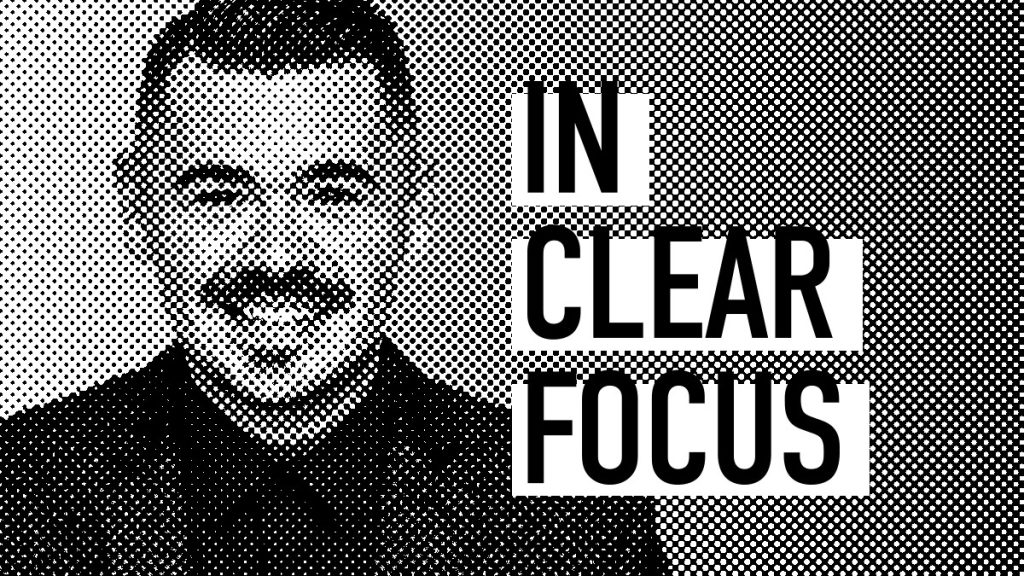
Joe Englander of Fowler White Burnett P.A. discusses the legal status of cannabidiol and cannabis production this week on IN CLEAR FOCUS.
In Clear Focus this week: the legal status of cannabidiol and cannabis production. As CBD-infused products appear within a growing number of categories, we’re joined by legal expert Joe Englander of Fowler White Burnett P.A. in Miami, Florida. Joe provides practical advice for CBD brands to ensure compliance with current state and federal laws.
Episode Transcript
Adrian Tennant: You’re listening to IN CLEAR FOCUS, a unique perspective on the business of advertising produced weekly by Bigeye. Hello, I’m your host, Adrian Tennant, VP of insights at Bigeye. An audience-focused, creative-driven, full-service advertising agency, Bigeye is based in Orlando, Florida, but serves clients across the United States and beyond. We provide audience research, strategy, branding, creative, media, and analytics services. Thank you for joining us today. On this week’s show, we’re focusing on CBD product marketing. That is products containing cannabidiol. A chemical compound from the cannabis plant, CBD is a naturally occurring substance that’s used in products like oils and edibles to impart a feeling of relaxation and calm. Unlike its cousin, THC, CBD is not psychoactive, so you won’t get high. CBD has rapidly become a phenomenon. You’ll find it in tinctures and pills intended to relieve conditions such as anxiety and arthritis pain, but CBD is also highlighted as an ingredient in a growing range of consumer categories. Today, CBD is used in beauty products such as facials and lotions, in food and beverages, sports supplements, pillows, and even apparel. One New York-based fashion brand infuses CBD oil into the fibers of their sportswear fabrics. And use is not limited to humans. There are CBD products especially for pets. In a national research study, Bigeye recently undertook, we found that 17% of owners already administer CBD to their pets and 42% of pet owners who don’t currently use CBD said they’re open to it to use in the future. Yet, in spite of this booming market, there is a lot of confusion about the legality of CBD and its relationship to cannabis. As an agency actively involved in CBD product marketing, Bigeye understands the potential issues of working with brands in this space and the importance of keeping abreast of what product claims can and can’t be made. As a CBD marketing agency bringing these issues into CLEAR FOCUS, it’s my pleasure to welcome to this week’s show one of our go-to experts. Joe Englander is a shareholder in the intellectual property practice group at Fowler White Burnett, attorneys at law. Joe leads the firm’s cannabis law team working with industry clients in the field of hemp, medical marijuana, and affiliated businesses. Fowler White Burnett has offices in Miami, Fort Lauderdale, and West Palm Beach, which is where Joe is joining us from today. Welcome, Joe.
Joe Englander: Hi. Thank you very much, Adrian. I’m very happy to be here.
Adrian Tennant: What are some of the most common misconceptions you think consumers have about CBD?
Joe Englander: Well, I think that most consumers and perhaps some lawmakers that it’s possible to get high on CBD, which it simply isn’t, as you mentioned that the introduction. And I think that the regulations show that. Because when you grow the hemp, the product that might be left on a field has to be destroyed. And there, there has to be fencing and, and barriers from the public, like you would think would be necessary for, for example, a medical marijuana facility. But the product is – I sometimes say that hemp is as safe as tangerines!
Adrian Tennant: Does the same kind of misconception hold true among retailers?
Joe Englander: I don’t think so. I think the retailers are very well educated about the products that they’re selling. They want to give good products. They don’t want their clients or their customers to be surprised. So they usually are very well educated and I think the consumers who come in looking for CBD know exactly that’s what they’re looking for and they don’t expect THC and they would be probably very upset to have it.
Adrian Tennant: So Joe, what are the legal rules or regulations around CBD here in Florida?
Joe Englander: There are two sets of regulations. There’s the federal set and there’s the Florida state set. The federal set: it comes from the US Farm Bill of 2018. And new regulations, which were just promulgated last week by the USDA. These regulations from the USDA are interim regulations. So they were effective. Right now, under the Florida guide, there’s a statute, the Florida Hemp Act and Regulations, which have not yet been promulgated: not quite yet made final by the Florida Department of Agriculture and Consumer Services. And it’s through the framework that you have to go through this pair of regulations and statutes that a person is able to get the license that they need to grow and sell CBD and hemp products here in Florida.
Adrian Tennant: How fast is the market for CBD and CBD-infused products growing?
Joe Englander: It’s growing very rapidly. It’s hard to see how fast it’s actually growing in Florida because it hasn’t actually started yet. Right now the only hemp that’s growing in Florida is with the university pilot program. But the interest and the businesses which are showing up to Florida showcases and seminars – it grows more each year.
Adrian Tennant: Could you tell us a little bit more about that pilot program?
Joe Englander: Well, under Florida state law, the University of Florida and other agricultural colleges are allowed to begin growing hemp to see what types of seeds are viable here in Florida. The thing about hemp is it can only have a certain low percentage of THC so they’re confirming that the seeds which they are testing are in fact hemp seeds and not a marijuana seed.
Adrian Tennant: Right now, what should manufacturers include on CBD product labels to be compliance with legal rules?
Joe Englander: That’s an interesting point there. You’ll find that in the regulations with both the Florida regulations and the interim regulations that you have to say that there is CBD on them and the amount of CBD it has, but you can’t make any medical claims with regard to the CBD at this point. But you have to show what the percentage is and what dosages, like what the recommended… whether you’re supposed to take one edible or two out of a package of 50 edibles.
Adrian Tennant: So Joe, what legal services or areas of law do you focus on for your clients?
Joe Englander: Well, the first thing I do is I try to get the permits and licensing for either growing or selling or manufacturing CBD or hemp products and help work that through the system here in Florida. I help work through the laws and regulations for new businesses or businesses which already exist that want to expand into this area. The Department of Agriculture is going to inspect and verify the product and they’re going to test different products to make sure that the dosage listed is going to be – I’m sorry, the amount ingested – it’s going to be what it says on the label. So if there’s any issues with that, they’re going to issue a stop-sale order or an administrative action. And at that point, I think it’s helpful for my clients when we can negotiate that type of thing. I’ve been doing that for different interviews with the Department of Agriculture for years now.
Adrian Tennant: You mentioned USDA testing. Is that testing conducted here in Florida or do samples have to be sent out of state?
Joe Englander: Well, right now the Florida testing facilities are being certified by the USDA. So until the Florida system is approved by the USDA, we don’t have a test-certified testing facility at this point yet. Once that comes in, we will have a lab here in Florida and, and all over.
Adrian Tennant: How would you characterize your typical clients?
Joe Englander: Some of my clients are growers of hemp, some of my clients are retailers of hemp products. They are online as well as in brick-and-mortar stores. There are pet clients that I have that sell both the tinctures – which are drops of the oil, which what you put under a person or a pet’s tongue – and there are chews which you give to a dog or another animal. So that’s part of the pet supply clients that I have. I have retail people that would sell the gummies and the oils as well as the creams.
Adrian Tennant: What does the legal process look like for trademarking or official lab approval of a CBD-based product?
Joe Englander: The US patent trademark office just set out guidelines for patent and trademark examiners to review trademarks related to CBD. Now that it’s passed through the Farm Bill of 2018. And with those guidelines, there should be no problem with hemp-related trademarks. As for medical marijuana or marijuana-related trademarks, those will still not be approved because unless and until marijuana has taken off as a schedule one drug.
Adrian Tennant: It is a little confusing, the interplay between state regulations and at the federal level. Do you see a path forward for greater clarity here?
Joe Englander: Well, I don’t think that there’s going to be clarity unless and until there’s legalization of marijuana. And then they would probably be similar to the types of regulations that go on with cigarettes or perhaps liquor. As far as Florida goes, there should be no limitation, no general limitation as far as CBD trademarks and protections of naming and branding as long as the restrictions regarding age are taken care of.
Adrian Tennant: If we were introducing a CBD-based product, we would not actually be allowed… previously we’d not been allowed to trademark that name or logo. Is that correct?
Joe Englander: That is absolutely correct. There were trademark applications just held by the trademark office and they just said it was suspended and they would simply reject it. Um, but once these guidelines came out after the Farm Bill, these trademark applications are sailing through.
Adrian Tennant: And is also true of marijuana-based products?
Joe Englander: I think it’s the opposite for marijuana-based products. If something is specifically for marijuana-related to the sale or production or, or, or smoking of marijuana, then the trademark office will reject those, um, those applications for dealing with illegal products.
Adrian Tennant: Right.
Joe Englander: The trademark office has no distinction between marijuana or heroin.
Adrian Tennant: Joe, are there any special considerations for CBD cosmetic marketing?
Joe Englander: I would think of CBD cosmetics and cosmetics if you were using CBD oil to be similar to using let’s say almond oil. And the reason I say that is it, it’s just another oil. You wouldn’t be allowed to say that there are any medical changes that occur through the use of the cosmetic because that would make it more like a drug than a cosmetic. But at the same time, if there are any restrictions regarding the use of CBD maybe within a state – then if you’re going to sell it in the state, you need to let them know, you know. For example, under the same guidelines as if there were an allergen for almonds, they would probably say something that, you know, they would probably indicate that it’s not to be ingested.
Adrian Tennant: So Joe, how do your clients typically find you?
Joe Englander: My clients come in in various ways. Podcasts like this one certainly help and it’s a matter of getting the word out. I go to seminars and I moderate panels around the country. Of course, I have our own website, and LinkedIn, and through word-of-mouth.
Adrian Tennant: Joe, you’ve helped a lot of entrepreneurs develop CBD products. What advice do you have for anyone considering entering the CBD market with a new product?
Joe Englander: Well, my advice to any entrepreneur would be to be able to differentiate your product, and show whatever way that your product is better. If it’s better based upon effectiveness, then it could be something that you might want to patent. If you’ve got a design or branding that’s particularly effective, then you would want to protect the trademarks and the trade dress. If you’ve made the formulas that are so successful to you, you’d want to make sure that whoever’s working on or helping develop those formulas doesn’t compete against you. You’d want to have agreements to make sure that whatever they’ve developed belongs to you or your company. But this is advice I give to any entrepreneur for that matter.
Adrian Tennant: Okay. So staying with that audience of entrepreneurs with potential CBD-based products, what are some of the most common perils or pitfalls?
Joe Englander: Right now, there seems to be an issue with getting product to the manufacturers or from the farm to the producers. So I think the short answer is we want to have a consistent supply.
Adrian Tennant: Can you tell us a little about how you came to be advising clients on the laws surrounding CBD and cannabis?
Joe Englander: I worked for the Florida Department of Agriculture for five years. Some of these agricultural regulations I enforced myself. So I have a familiarity both with the bringing about of the regulations and as the enforcement of the regulations and working with a department to help solve problems.
Adrian Tennant: What most excites you about working with CBD marketing products or brands?
Joe Englander: Oh, it’s cutting edge. As someone who’s working in the law, they’re gonna work on the law. Why not be right where people were, where the rubber is hitting the road right now? The people are excited about it. The people are using it, are believing in it. The people who, the people who are in the business of it, you can tell that they’re there. It’s a passion project for all of the people involved. I know we’re working with it, the people who are buying it and the people who were selling it at these conferences, if you could just tell it that everyone there is there because they want to be there.
Adrian Tennant: Joe, finally, what does having a CLEAR FOCUS mean to you?
Joe Englander: I would say when you are looking at your business or you’re looking at your career and you’re looking at what you want to be doing and you’re looking forward and you have an idea and you visualize the good results that you want and then you plan accordingly and you follow the plan and you follow the plan and be prepared to adjust. Right. But as long as you take the time to look in advance to where you want to be. That to me that that is a clear focus for anybody.
Adrian Tennant: For more information about your services, Joe, how can our listeners find you?
Joe Englander: I’m at the law firm, Fowler White Burnett. Our website is fowler-white.com. My bio is right there on the page. I’m also on LinkedIn if that’s easier for anybody who wants to reach out to me. I’m happy to answer any questions from anybody who’s listening in on the podcast. And this is a passion project for me as well, so I’m happy to help.
Adrian Tennant: Great. It’s been a real pleasure and very enlightening, I think. Thank you very much, Joe.
Joe Englander: Thank you, Adrian. It was a real pleasure to be here.
Adrian Tennant: So to recap: we learned about new regulations here in Florida and the introduction of a certification system to reassure consumers that the CBD in the products they’re purchasing comes from state-approved growers. And Joe offered up some great advice for entrepreneurs: follow the steps, and choose your partners wisely to ensure regular supply of product. Thank you to our guest, Joe Englander of the intellectual property practice group at Fowler White Burnett. You’ve been listening to IN CLEAR FOCUS, a unique perspective on the business of advertising produced by Bigeye. If you have questions or comments about the content of today’s show, please contact us at info@bigeyeagency.com. You’ll also find a transcript of today’s show on our website at bigeyeagency.com. I’ve been your host, Adrian Tennant. Thank you for listening. Until next week, goodbye.



